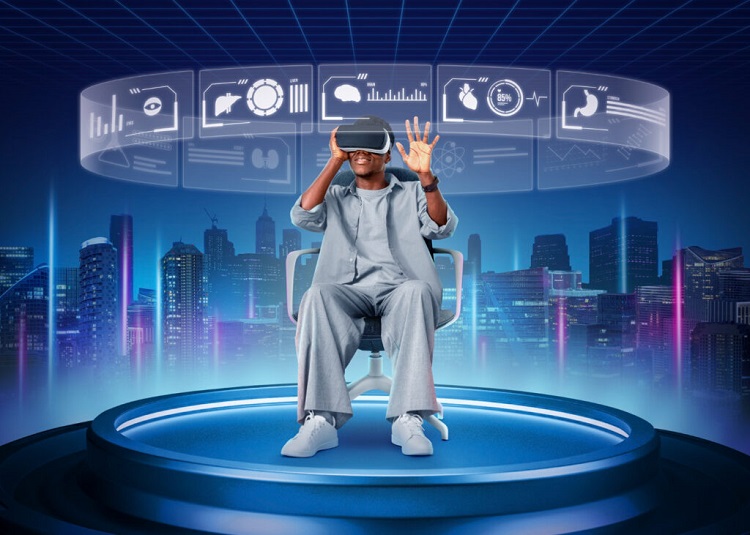Technology Giants Control the Global Security

1. Technological Infrastructure
Technology giants such as Google, Amazon, and Microsoft have developed vast infrastructures that underpin critical services globally. These infrastructures include cloud computing platforms, data centers, and communication networks that are essential for storing, processing, and transmitting sensitive information. Their reliability and scalability make them indispensable to governments and organizations for secure data management and operational continuity.
2. Surveillance and Monitoring
Advancements in surveillance technologies have empowered tech giants to monitor global activities extensively. Through algorithms and data analytics, companies can detect potential security threats, identify patterns of behavior, and preemptively mitigate risks. This capability extends beyond traditional borders, providing real-time insights into geopolitical developments and criminal activities.
Influence on National Security Policies
1. Collaboration with Governments
Technology giants often collaborate closely with governments to enhance national security efforts. This partnership includes sharing data for law enforcement purposes, developing secure communication channels, and implementing cybersecurity measures to safeguard critical infrastructure from cyber threats. Such collaborations raise concerns about privacy rights and the extent of corporate influence on public policy.
2. Regulatory Influence
The lobbying power of technology giants shapes regulatory frameworks related to cybersecurity, data protection, and surveillance practices. Their influence on legislative processes can impact the balance between security imperatives and civil liberties, prompting debates over transparency, accountability, and the ethical implications of technological interventions in security governance.
Cybersecurity and Data Protection
1. Defensive Capabilities
Technology giants invest heavily in cybersecurity defenses to protect their own networks and services from malicious actors. These efforts often include advanced encryption protocols, threat intelligence sharing, and vulnerability assessments to preempt cyberattacks. By fortifying their defenses, these companies also contribute indirectly to global cybersecurity resilience.
2. Data Privacy Concerns
The collection and utilization of vast amounts of personal data by technology giants raise significant privacy concerns. Issues such as unauthorized data access, data breaches, and surveillance practices provoke public scrutiny and regulatory scrutiny. Balancing the need for data-driven security measures with individual privacy rights remains a contentious issue in the ongoing debate over digital ethics.
Global Economic and Political Influence
1. Economic Power
Technology giants wield considerable economic influence, which translates into geopolitical leverage. Their market dominance allows them to shape economic policies, influence trade dynamics, and drive innovation agendas that impact global security priorities. This economic clout extends to developing and emerging markets, where digital infrastructures and technological dependencies are increasingly intertwined with national security strategies.
2. Geopolitical Tensions
The global operations of Technology Giants Control the Global Security often intersect with geopolitical tensions, posing challenges to international security frameworks. Disputes over data sovereignty, intellectual property rights, and cross-border data flows underscore the complex interplay between corporate interests and national security imperatives. These tensions highlight the need for nuanced diplomatic engagements and regulatory frameworks to manage geopolitical risks effectively.
Ethical and Societal Implications
1. Ethical Dilemmas
The ethical implications of technology giants’ involvement in global security encompass issues of corporate responsibility, human rights, and the ethical use of surveillance technologies. Debates on accountability, transparency, and the unintended consequences of technological interventions underscore the importance of ethical frameworks that uphold democratic values and individual rights.
2. Social Impact
The societal impact of Technology Giants Control the Global Security control over global security extends to issues of digital inclusion, accessibility, and the equitable distribution of technological benefits. Disparities in access to secure technologies and digital literacy exacerbate existing inequalities, posing challenges to global security resilience and social cohesion.
Conclusion
In conclusion, Technology Giants Control the Global Security play a pivotal and complex role in shaping global security landscapes. Their technological prowess, economic influence, and regulatory power intertwine with national security imperatives, geopolitical dynamics, and ethical considerations. As society navigates the evolving challenges of the digital age, addressing the governance, accountability, and ethical dimensions of technology giants’ control over global security remains paramount to safeguarding collective security and upholding fundamental rights in a digitally interconnected world.
FAQs on Technology Giants Control the Global Security
- How do technology giants influence global security measures? Technology Giants Control the Global Security influence global security through their advanced technological infrastructures, surveillance capabilities, and partnerships with governments. They contribute to cybersecurity defenses, monitor for potential threats, and shape regulatory frameworks that impact security policies worldwide.
- What are the ethical concerns associated with technology giants’ role in global security? Ethical concerns include issues of privacy infringement, data security, and the ethical use of surveillance technologies. There are debates over corporate responsibility, transparency, and the balance between security imperatives and individual rights in the digital age.
- How does the economic influence of technology giants impact global security strategies? Technology Giants Control the Global Security economic power allows them to shape economic policies, influence trade dynamics, and drive innovation agendas that intersect with national security strategies. This influence raises questions about economic dependencies, geopolitical tensions, and regulatory oversight in digital security governance.





